It could be argued that much of the local history that occurs today is brought forth by our “leaders”, those who are elected or placed into a public office or position. Well, I was able to spend some time with many of those leaders on a day called “Civic Engagement Day” that was hosted and arranged by the LSA 300 team.
LSA stands for Leadership San Antonio and as you would expect, those individuals that took place in this class were just that, leaders of San Antonio. Just a quick fact, of the people that were present for this event and team included individuals from every district in San Antonio except for one. Now back to LSA and where it came from.
LSA is a leadership development course that incorporates members of the San Antonio Chamber of Commerce and the San Antonio Hispanic Chamber of Commerce. These leaders come together and learn about topics concerning the city and the development of San Antonio as a whole. These include but aren’t limited to infrastructure, educatio
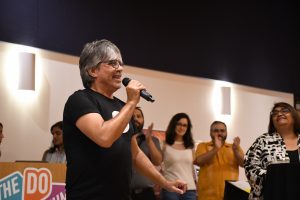
n, civic engagement, etc. The groups tackle a variety of questions regarding their selected topics and work within the groups and as a whole to come up with possible solutions. The program also incorporates visitors that come through and talk to the participants about their roles as leaders and how the leaders sitting before them can grow as leaders and join councils, boards, and positions in the public as well as in their selected private sectors.
LSA Civic Engagement Day was the last day of the program and involved a jam-packed day of activities and learning
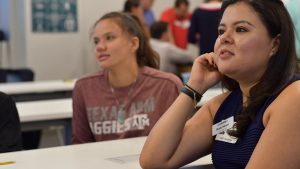
opportunities for San Antonio’s future leaders. I was able to participate as the group’s photographer of the program and did so with pride being that I am also a member of the Hispanic Chamber of Commerce as well.
We started the day at San Antonio’s very own Doseum, which as you may know is a great museum that is relatively new to the city and is located on Broadway St. Here we heard from the CEO of the Doseum, Leticia Van de Putte, former member of the Texas House of Representatives as well as several other leaders. Van de Putte and the rest of the panel talked about the injustices and hardships that have had affects on their lives and their careers. All of these women were inspirational and left an impact on my dat for sure!
Following our initial visit to the Doseum was a visit down to none other than San Antonio’s very own City Hall located on the site of one of San Antonio’s first plazas in front of the Spanish Governor’s Palace. Currently, the City of San Antonio residents are in argument over the propositions that have been proposed on this mid-term election. The husband of Senator Leticia Van De Putte paid us a visit at City Hall and explained the importance of civic engagement and the importance of leadership programs like the one that the participants of the group were taking part in.
There were several other stops on the trip that day to places like the AT&T Center, CAST Tech High School as well as another trip back to the Doseum but what I realized was
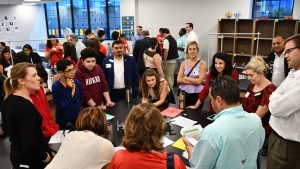
that the leaders that leave this group were all going to leave some impact on the world around them. This is history. These students of this program, a cohort comprised of rising leaders, CEO’s, VP’s, managers and directors, will decide the history of their respected companies and their respected communities. This is part of those community’s history and the chance to share in that was great.
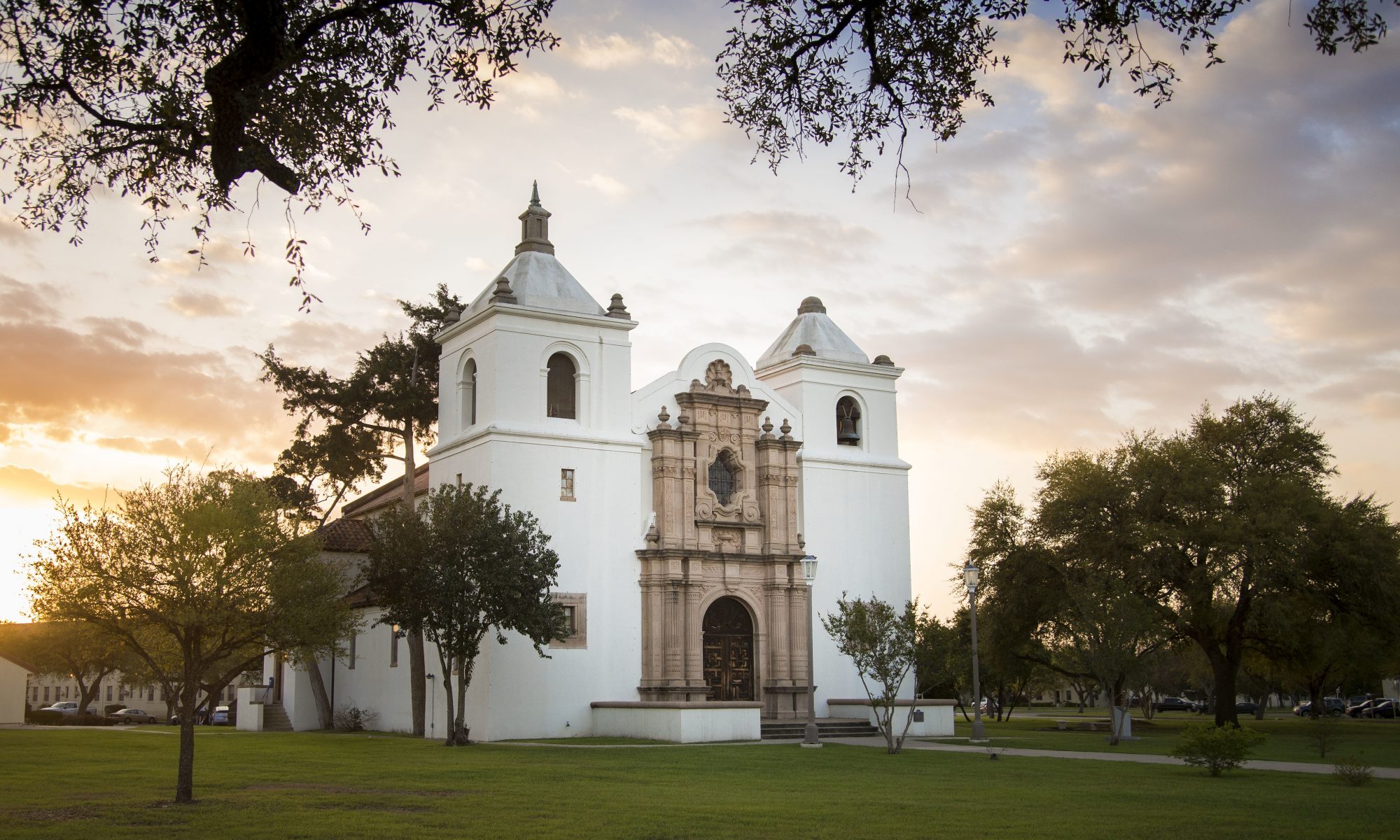
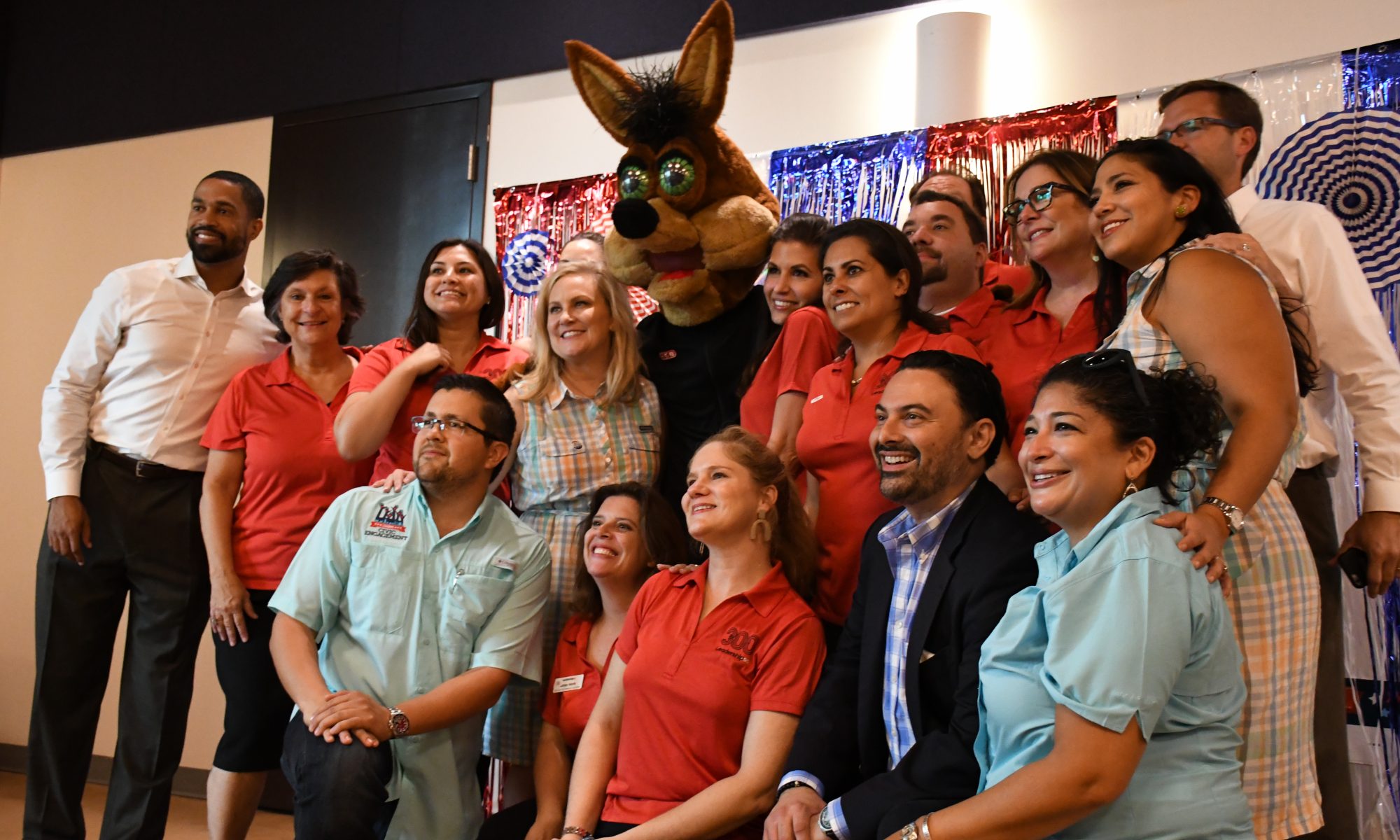
Such a heart felt blog, also very informative. I’d bet not a lot of people realized who these people are or what they do. I think it’d be cool if there was an “open to the public” day. I bet there are some many great minds in the city that could contribute significantly and just do know this exist.
Thanks for the comment John! I would like to let you know that many of these people have civic duties and do have public appearances with the communities that they represent as well as the communities that they are passionate about. If I hear of these opportunities, I will definitely let you know about them!
At the heart of Civic Engagement is making sure that every voice is heard, whether through representation by those empowered to make a difference, or by advocacy on behalf of all underrepresented groups. We must encourage civic engagement to make an impact in our community.
This year’s LSA 300 class left a legacy by creating an inaugural scholarship that will allow someone who may not otherwise have the means to pay the tuition for LSA to have a seat at the table. Beyond having a seat at the table is the way we actually make an impact, because at the end of the day, it’s more than just sitting at the table. We change the trajectory of our communities by being active listeners and actually engaging in shaping our City’s future in order to help change the bad parts of our community’s story. In fact, it is important to show up and to ask “How can I help?” Civic Engagement can be exercised by giving of your time, talent and/or treasure, but we must actually engage in exchanges of thoughts that will bring diverse ideas to the table. Our initial engagement may start small, with our time, but we may learn that we have a much needed talent that our community needs and we can indeed make great contributions! So don’t wait, engage your passion!
Adriana Rocha Garcia
LSA 300 Civic Engagement
Thanks for the comment, Adriana!
I appreciate you taking the time to read it and respond. I have tried to stay civically engaged since meeting the chamber but I have also joined other organizations and institutions that work towards the preservation and conservation of San Antonio history.
Thank you Geremy for this informational blog post about civic engagement and the LSA program. I, like others I’m sure, find (or would find both topics not only interesting but also very timely given the state of our nation’s political course and discourse).
Civic engagement should be practiced daily and in every part of our diverse city. It’s about inclusion so that others can learn and practice civic engagement and become empowered and affect change.
Thank you Geremy for your thoughtful post .
—Michael Quintanilla
Hey there Michael!
Thank you for the comment on my post, I appreciate it. I have tried to stay civically involved in the past few years and began by working for the Bexar County Elections Department here in town. The opportunities to see elections in real-time was amazing to me. That amazement is what drew me into more opportunities to become civically involved and now I am part of several communities that work towards preservation and conservation of San Antonio and the surrounding areas.
Informative post on LSA and civic engagement in San Antonio. I think the practice of public history has the capacity to influence and promote civic engagement. I really like the trend of museums and other institutions taking a stance on issues like some of the examples we’ve been reading in class. I think it’s important for the public to feel that their voice matters and have a forum for discussing these issues. As you know I’m in the 2018 class of the Alexander Briseño Leadership Development Program and I’ve been privileged to work alongside community partners and leaders from all around San Antonio. Programs like ABLDP and LSA are awesome! I feel like I’m adding so many tools to my professional toolkit. Great post!
Thanks for that Sara! I definitely understand the importance of being a part of these great organizations for many reasons. The issues that they are able to discuss and come up with answers or ideas as a collective is very important and it will be interesting to see the types of progress can come from these conversations.